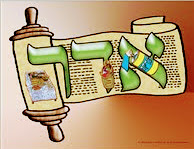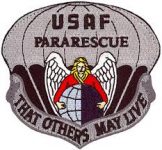The Known Name Myth
For most of my life, I have always been taught and told that YaHVaH did not make His Name known to the patriarchs, only to Mosheh (Moses). Is that what you always heard?
Well, I have great news. It’s a myth propagated by the mistranslation of the Scriptures. Even our Restoration Scripture got some of it wrong.
In a previous article and in my book1, I mentioned that YaHVaH made His Name known to Abraham (Abram at the time) in Genesis 15:7, to Jacob in Genesis 29:13, and that “Throughout the rest of the Book of Genesis you can find the Name of YaHVaH used by Abraham . . . Isaac . . . Jacob (later called Israel), Leah and Rachel.”1
So why, if YaHVaH mentioned His Name to them and they used His Name, does Exodus 6:3 say that He did not? Here’s what that verse says in KJV, starting with verse 2, “2 And [El] spake unto Moses, and said unto him, I am [YaHVaH]: 3 And I appeared unto Abraham, unto Isaac, and unto Jacob, by the Name of [El Shaddai], but by My Name [YaHVaH] was I not known to them.” This is what the TROSNB says, “2 And Elohim spake to Moses, and said unto him, I am YaHVaH: 3 I appeared therefore unto Abraham, unto Isaac, and unto Jacob as El Almighty, although by My Name YaHVaH was I not known to them?” In this version, they come close by putting the last part in the form of a question.
Now let’s see what this verse actually says, word for word in the Hebrew, my translation:
וַיְדַבֵּר אֵלֹהִים אֶל מֹשֶׂה וַיּוֹאמֶר אֶלַיו אַנִי יָהוָה
And spake > Elohiym > to Moses > and said > to him > I am YaHVaH
וָאֵרָא אֶל אַבְרָהָם אֶל יִצְחָק וְאֶל יַעַקֹב בְּאֶל שַׂדָּי וּשְׂמִי יָהוָה
And I appeared > to Abraham > to Isaac > and to Jacob > in El Shaddai > and My Name YaHVaH
לֹא נֹדַעְטֹי לָהֶם
Not > was my knowledge > to them.
Do you see what it actually says? That He appeared to Abraham, Isaac, and Jacob in El Shaddai and His Name YaHVaH. That lines up with the Scriptures in Genesis that I mentioned. It was His knowledge that He did not give them, which also lines up with Scripture. Of course, we can use the last part in a question like the TROSNB “Was not my knowledge to them?” which would show that they were given some knowledge as well. However, knowledge in the Hebrew is in the infinitive absolute which denotes full of complete knowledge. Although YaHVaH spoke to Abraham, Isaac, and Jacob, He never gave them the knowledge of His presence the same way as He gave to Mosheh.
Mosheh was given the Torah, counseled for 40 days (twice) alone with YaHVaH, saw YaHVaH’s glory and presence pass by him on the Mount, and witnessed YaHVaH’s glory and power constantly.
The word noda’etiy, is usually translated “I was known.” This cannot be the correct translation, unless it is a question “Was I not known to them?” This is because we know from Genesis that He was known to them.
The root word is Yada’ meaning “to know,” Strong’s 3045. Verbs that start with the Y are called drop letter verbs. When they change context, they drop the Y in most cases. In the Niphal version/context the “Ya” is dropped and replaced with “No.” Now you have Noda’, which means “He was known.” The “etiy” at the end would change it from He to I was known. However, look at Strong’s 1847 “da’at” which also comes from Yada’. It means knowledge and is the infinitive absolute. Add the “No” for the Niphal version and “iy” for the possessive and you have Noda’tiy = “was my knowledge.” You decide. Are these last three Hebrew words: “I was not known to them.”; “Was I not known to them?”; “My knowledge was not to them.”; or, “Was My knowledge not to them?” Either way, they are complete sentences, separate from the rest of the verse’s statement. Since original Hebrew did not have periods or verse break-ups, it is easy to see the words were wrongly combined.
Literally, there should be a period at the end of YaHVaH in this verse. There is one error. A second error is in front of El Shaddai. It is translated “by” (KJV) or “as.” To be “as,” it would have to be the Hebrew Ke, which it is not. It is the Hebrew Be, which means “in” or “on.” The third error is in front of My Name. It is translated “but by” (KJV) or “although by” (TROSNB). It would have to be ‘ith ‘el (‘eth, ‘al, ‘im) in the Hebrew, but it is not. It is “oo” = and, “shemiy” = My Name. This means the two, El Shaddai and YaHVaH, are tied together, not separated. The completed sentence is “I am YaHVaH, and I appeared to Abraham, to Isaac, and to Jacob in El Shaddai and My Name YaHVaH.” “In” is a quantitative word and refers to how YaHVaH appeared. With this in mind, the verse can alternatively be translated in English like this, “I am YaHVaH, and I appeared in El Shaddai and My Name YaHVaH to Abraham, to Isaac, and to Jacob” and still be correct.
There is another error in the KJV. In front of El Shaddai the KJV has “the name of.” These words are not in the original Hebrew. Neither is the word “therefore” in the TROSNB, which appears after “appeared.” We can now see this verse, when translated correctly, agrees with the rest of Scripture, namely Genesis. Since Mosheh wrote both books, it makes sense that they would agree and not be in conflict with each other.
Adam, Seth, & Enosh knew His Name, Gen. 4:26; Noah knew His Name, Gen. 9:26; Abraham knew His Name, Gen. 15:7; Isaac knew His Name, Gen. 26:25; Jacob knew His Name, Gen 29:13 and 49:18; and, Mosheh knew His Name and was told to proclaim it to all Israel, Ex. 3:15,16. Quite frankly, everyone knew His Name and used it back then. Only after the exile to Babylon, was the Name suppressed to prevent the Gentiles from using, abusing, or hearing it.
Debunk the myth. Tell everyone you know, His Name was known as YaHVaH.
May YaHVaH bless you and keep you; may YaHVaH shine His face upon you and be gracious to you; may YaHVaH lift up His face upon you and make peace for you. Thus shall they put My Name upon the sons of Israel and I Myself will bless them.
Shalom, In His Service
Min. Dr. Donald H. Garrett
References:
Bible. King James Version. 1611.
Bible. The Restoration of Original Sacred Name Version. 1976. 7th ed. Emory, TX: First Assembly of YaHVaH. 2002.
1 Garrett, Donald. “The Name” The Believer’s Advocate Jan/Feb 2004: Portland, OR.; and Garrett, Min. Dr. Donald. “The Name” Ton Didaskalia. 2005. Gatesville, TX, Beaumont, TX: Odon Obadyah Ministries, Inc. 2017.
Strong, James, LL.D., S.T.D. 1822-1894. The New Strong’s Expanded Exhaustive Concordance of the Bible. Red-letter edition. Nashville, TN: Thomas Nelson. 2001. ISBN 0-7852-4539-1.
First published 3-2006, © 2006, 2018 Min. Dr. Donald H. Garrett and Odon Obadyah Ministries, Inc.
Return to Articles by Min. Garrett







